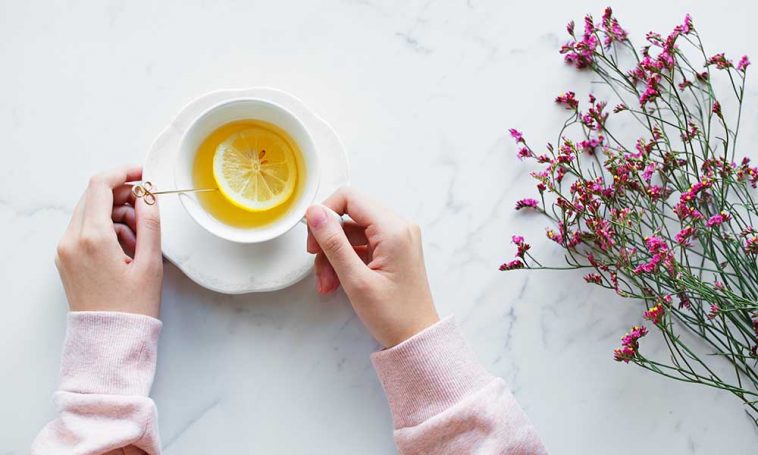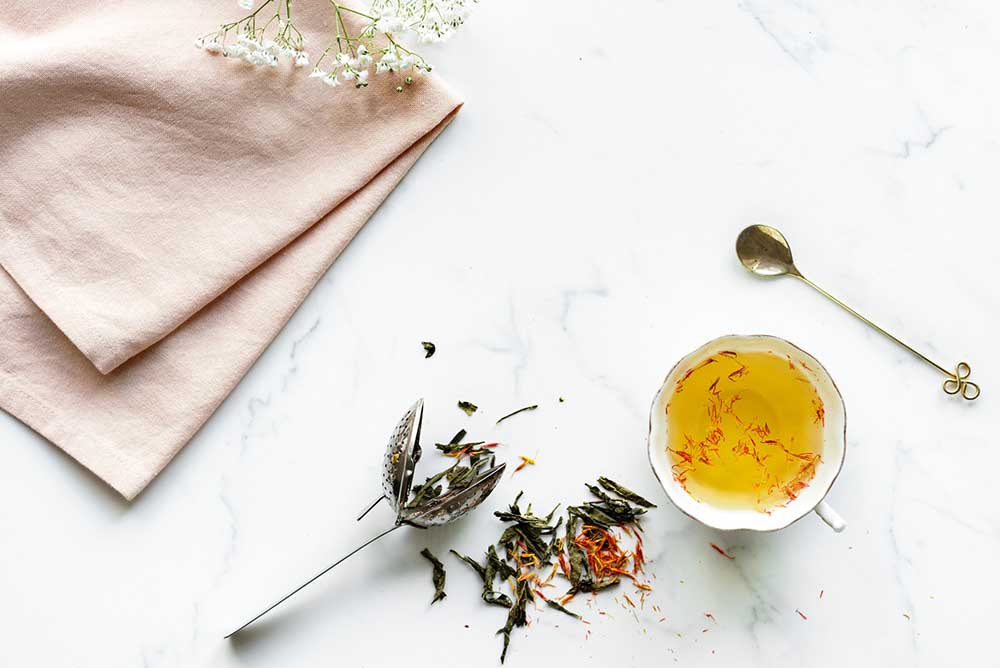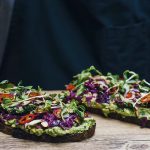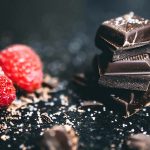Boil up the kettle and break out the china, it’s Tea Time!
Coffee is the ever popular beverage we all tend to turn to in the mornings for that much needed boost of energy it takes to crawl and fumble out the front door, but our tea bags should not be kept up quiet in the cupboards.
Our Ancestors have been drinking and cultivating tea since it was first created around 2,700 BC. At the time, when tea was first served, it was used for medicinal purposes, and for good reason. All teas seem to share certain health benefits and commonalities: high source levels of antioxidants; calming affects on the mind; clear skin control, and immune system saviours.
But not all teas, are True Teas.
Confused? Let me explain. True Tea, as it is called, comes from the Camellia Sinensis plant, native to Asia. There are thousands of varieties of teas, but there are four main types: White Tea, Black Tea, Green Tea and Oolong Tea. The “other” teas we so often enjoy, are called Herbal Teas.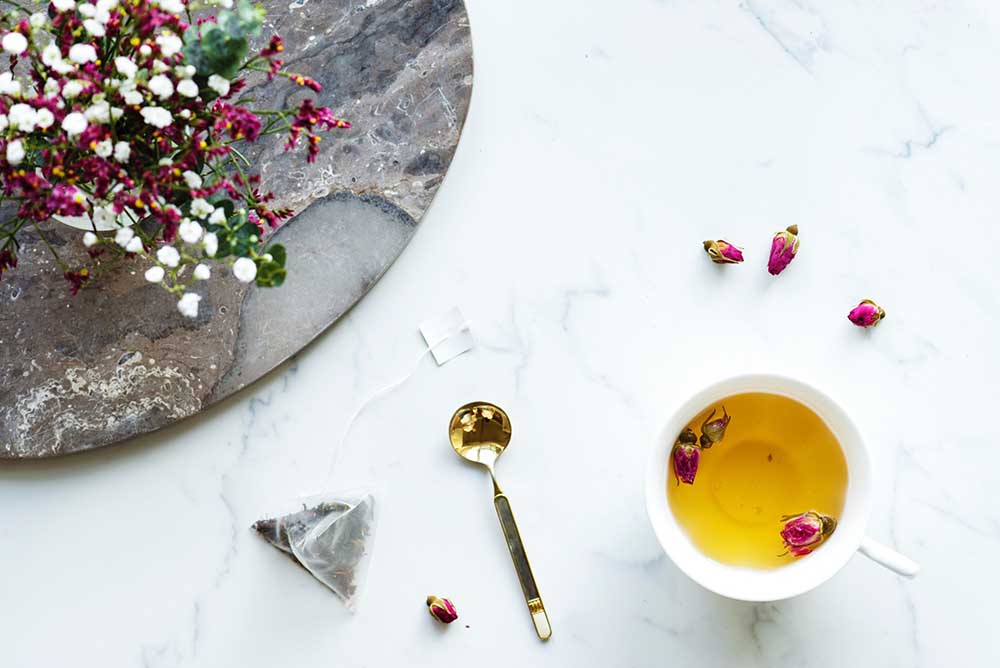 True Teas are made from the leaves of one single plant (the above mentioned Camellia Sinensis), whereas Herbal Teas are a decoction, or infusion, of spices and herbs (at times, even flowers and fruit, depending on what you buy).
True Teas are made from the leaves of one single plant (the above mentioned Camellia Sinensis), whereas Herbal Teas are a decoction, or infusion, of spices and herbs (at times, even flowers and fruit, depending on what you buy).
True or not, both beverages come in many tasty flavours and both boast many health benefits.
Benefits of True Teas
Green Tea
Many believe that Green Tea is the healthiest beverage on the planet! Once you read into it, it’s rather hard to disagree. Green Tea is packed with powerful antioxidants and polyphenols that are said to help to reduce inflammation and prevent cell damage. Some studies show that this may help to protect against many potential diseases, including Alzheimer’s, Type 2 Diabetes, Cardiovascular Disease, and even… types of Cancer. Similar to coffee, Green Tea does have caffeine, significantly less but still enough of the stimulant to increase the firing of neurons and neurotransmitters like dopamine and norepinephrine. This is a good thing because neurotransmitters work to keep our brains functioning, our bodies moving and our blood pumping.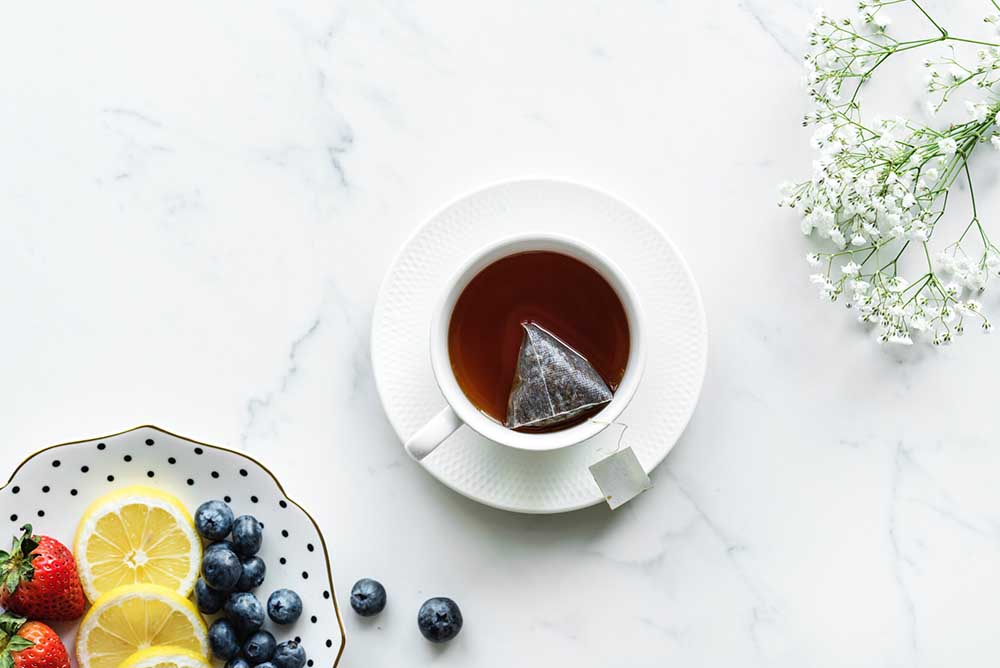
They affect both our physical and psychological functions; this includes our learning and concentration levels. Tea, as it turns out, is the superhero of beverages when it comes to brain function. Studies show it can aid in improving our mood, our vigilance, reaction time and even our memories (I know what’s going to be in my mug this exam season). And just when you thought it couldn’t get any better… reports indicate that Green Tea may increase fat burning and boost your metabolic rate – this may differ depending on the individual, but regardless of results, I can undoubtedly guarantee that Green Tea will prove healthier than a can of pop any day.
Black Tea
This Black Tea beauty is rich in antioxidants and comes loaded with a host of benefits! It contains flavonoids, naturally found in fruits and veggies like kale, brussel sprouts, strawberries and citrus. According to research, flavonoids are said to be mood and memory enhancing, and have anti-inflammatory properties – they may even boost your immune system. These antioxidants could also help to remove free radicals, thus lowering the risk of certain diseases. (Just in case you need a refresher, and to save you a Google search, free radicals are essentially unstable atoms that can potentially damage cells and cause illness and aging). So three cheers for Black Tea!
White Tea
Like our other Tea Time friends, White Tea is very rich in antioxidants. So, it comes as no surprise that White Tea may also help against the fight of free radicals and the damage they can do linked to aging, inflammation, weakened immune systems and a slew of diseases. White Tea is supposedly one of the best teas to fight free radicals, (next to Green Tea, since they have very similar antioxidant benefits). White Tea may also help with short term weight loss. Studies conducted on the matter show it may help to stimulate the breakdown of fat, and prevent new fat cells from being formed. And lastly, to top it all off with a cherry, research also indications that White Tea may just help combat skin aging and aid in reducing effects of osteoporosis, and other diseases (bravo White Tea, you may be the most delicate of the four varieties, but still pack quite a healthy punch).
Oolong Tea
Oh so lovely Oolong Tea! Just as delicious served boiling hot or icy cold. This buttery and smooth beverage has been shown to bear positive results when examining the effects of Oolong on weight-loss and diabetes. Oolong is said to activate enzymes that can enhance the functions of fat cells, thereby managing the metabolism. This tea may also be used to help achieve clear skin, and could even reduce eczema. The strong antioxidants it contains are said to have wonderful effects on protecting teeth against decay and even… strengthening bones. Like our other top four teas, Oolong is also said to help relieve stress and improve your daily mental performances.
Benefits of Herbal Teas
Peppermint Tea
Peppermint is a powerful herb with many health benefits to its name. When brewed into an herbal tea, it is said to relieve indigestion and bloating. Studies show it may help with muscle spasms too, not surprisingly, as peppermint oil has been shown to effectively aid in relaxing spasms in the intestines, esophagus and colon. Overall, this is a tea with antioxidants and antibacterial properties – and a very popular choice when it comes to support of the digestive system.
Ginger Tea
That being said, for help with your digestive system, there may be no greater tea than gentle Ginger. It can aid in calming and curbing nausea, vomiting and upset stomachs. This tea is also said to help support the absorption of nutrients into the body. And in my personal opinion, Ginger is the ideal tea to turn to when you start to get to sniffles. Around cold and flu season, this is my favourite tea, and a true power force when it comes to fighting off a cold. For an extra boost to your immune system, and to beat back your illy chilly uncomfortable sickness, try adding a tablespoon of lemon juice and a teaspoon or so of honey to your cup. It’s both soothing and sweet, and it might just help you feel better faster.
Chamomile Tea
Oh so calming Chamomile Tea. There is nothing more soothing than a cup of Chamomile – and studies would appear to agree, as this Herbal Tea is said to ease your insomnia. It is often used to aid in sleep, so if you ever find yourself awake and far too tired of counting sheep, boil a kettle of Chamomile – it may just improve your quality of sleep, and get you to the Land of Dreams a little sooner. Made from dried Chamomile flowers, this tea, like Ginger, is also a reported superhero when battling a cold or cough. Research also shows it may have antibacterial and anti-inflammatory properties – and even protect your liver.
Rooibos Tea
Largely grown in South Africa, this strong flavourful tea is high in vitamin C and is said to have strong antioxidants. It is also said to help with eczema. And here’s an interesting point, especially if you prefer decaf. Unlike Black and Green Teas, Rooibos is caffeine free. For some, caffeine carries a reputation of inflicting headaches, anxiety and a troubled time of drifting off to sleep. If this is true for you, then Rooibos may be your new best friend.
So there you have it, the benefits and blessings of Tea. As is made quite evident throughout the article, there are many, many, many, yes, MANY, studies and reports that claim drinking teas can help reduce your chances of developing various diseases; increase your longevity; improve your skin quality; aid your immune system; and assist your overall health. The extent to whether this is true or not is still to be determined, but in the mean time, I think it is safe to say, that waking up with a cup of hot tea will do you more good than harm. So steep away! And begin your day with a soothing and stimulating start.
Happy brewing!

